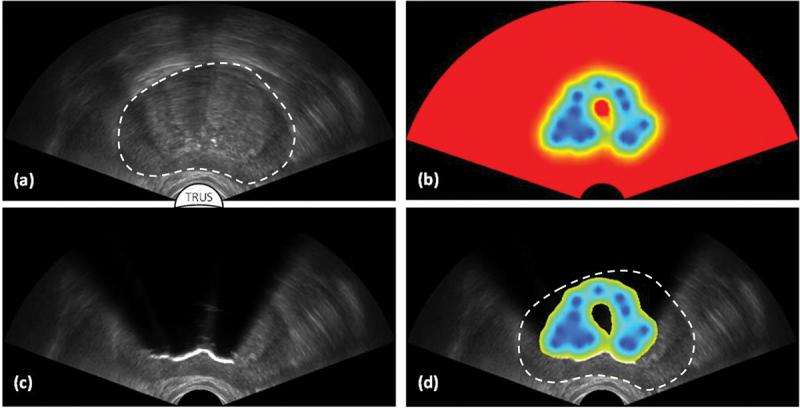Researchers develop "intelligent" training tool to treat prostate cancer

Researchers at Carnegie Mellon University have developed a new approach to improve training for cryosurgery, a procedure used to treat prostate cancer by freezing and destroying the diseased tissues. The new approach will shorten the learning curve and improve the quality of the minimally invasive treatment by reducing complications, shortening recovery times and lowering health care costs.
Yoed Rabin, a professor of mechanical engineering and a board member of the American College of Cryosurgery, has led the development of this first computerized training tool. This intelligent training tool provides feedback to the trainee and offers advice on how to maximize the freezing of cancer tumors while preserving the healthy tissues surrounding the site.
Prostate cancer is the second leading cause of cancer death in men according the American Cancer Society, which predicts that one in seven men will be diagnosed with the disease during his lifetime and one in 38 will die from the disease.
"As engineers, we can take advantage of recent developments in computer hardware and computation techniques to help doctors develop education methods for minimally invasive thermal surgery," Rabin said.
In an article published in Technology in Cancer Research & Treatment, Rabin's team demonstrated how its intelligent tutoring approach could shorten the learning curve of surgical residents. The computerized system, which runs about 100 times faster than the actual cryosurgery procedure, uses novel algorithms to create 3-D thermal images of tumors in patients in a variety of scenarios. This allows the trainees to see firsthand the effects of the tissue they are freezing.
"Cryogenic technology today is far more advanced than the surgical treatment methods used by surgeons," Rabin explained. "As engineers and surgeons collaborate, we can improve the quality of the applied methods and advance the widespread use of cryotherapy."
Co-authors on the paper are: Kenji Shimada, professor of mechanical engineering; recent Ph.D. graduates Anjali Sehrawat and Robert Keelan; and T. McCormick, director of the General Surgery Program, and Donamarie N Wilfong, director of the Simulation, Teaching and Academic Research (STAR) Center, of the Allegheny Health Network.
The tutoring approach was tested at the STAR Center, a multidisciplinary simulation center where students, practitioners and members of the allied health community can practice and perfect their clinical skills.


















